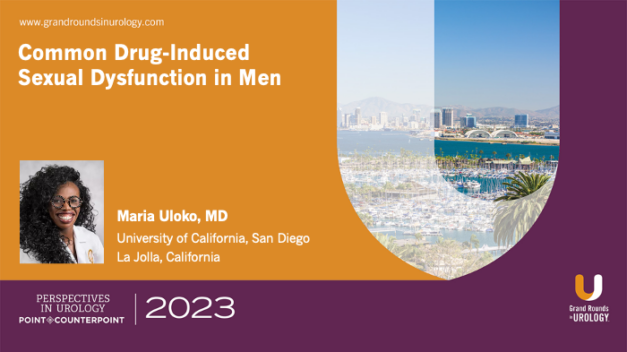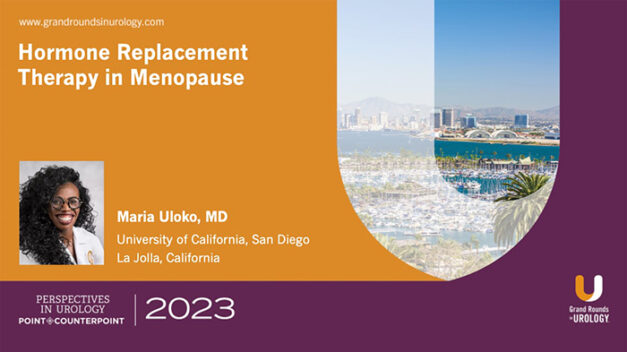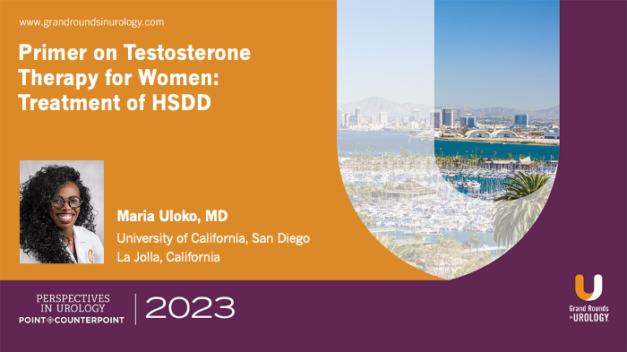Common Drug-Induced Sexual Dysfunction in Men
Maria Uloko, MD, discusses symptoms, causes, and treatments of post-finasteride syndrome (PFS) and post-SSRI sexual dysfunction (PSSD) in men. She begins by defining PFS, noting its controversial status in urology. Dr. Uloko outlines PFS symptoms, including depression, suicidality, and anxiety. She explains that these psychiatric symptoms often worsen when medical professionals dismiss them as results of finasteride use.
Dr. Uloko then considers the incidence of PFS, emphasizing the need to study PFS in the treatment of male pattern hair loss and highlighting the NIH’s inclusion of PFS in its 2015 list of Rare and Genetic Diseases. She discusses how 5-alpha-reductase inhibitors cause PFS, later evaluating the results of androgen deprivation in animal models as well. This leads Dr. Uloko to highly recommend validating patient concerns. She completes her discussion of PFS by advocating for a biopsychosocial approach to treatment, noting the importance of medication cessation and educating patients.
Dr. Uloko proceeds by discussing PSSD in men. She first reviews PSSD and its symptoms, noting that the prevalence of persistent sexual side effects following SSRI discontinuation is unknown. She lists common SSRIs and explains their use in treating depression and premature ejaculations. Dr. Uloko then discusses how discontinuation of the drug can increase serotonin activity. She explains how serotonin negatively affects sexual factors, signaling PSSD’s mechanism of action. Dr. Uloko transitions into a discussion on the pathophysiology of PSSD and explores the debate surrounding this topic. She then focuses on PSSD treatment, proposing that urologists utilize a biopsychosocial approach and address correctable factors. She concludes her discussion by emphasizing the need for patient validation and further research on PFS and PSSD.
Read More


